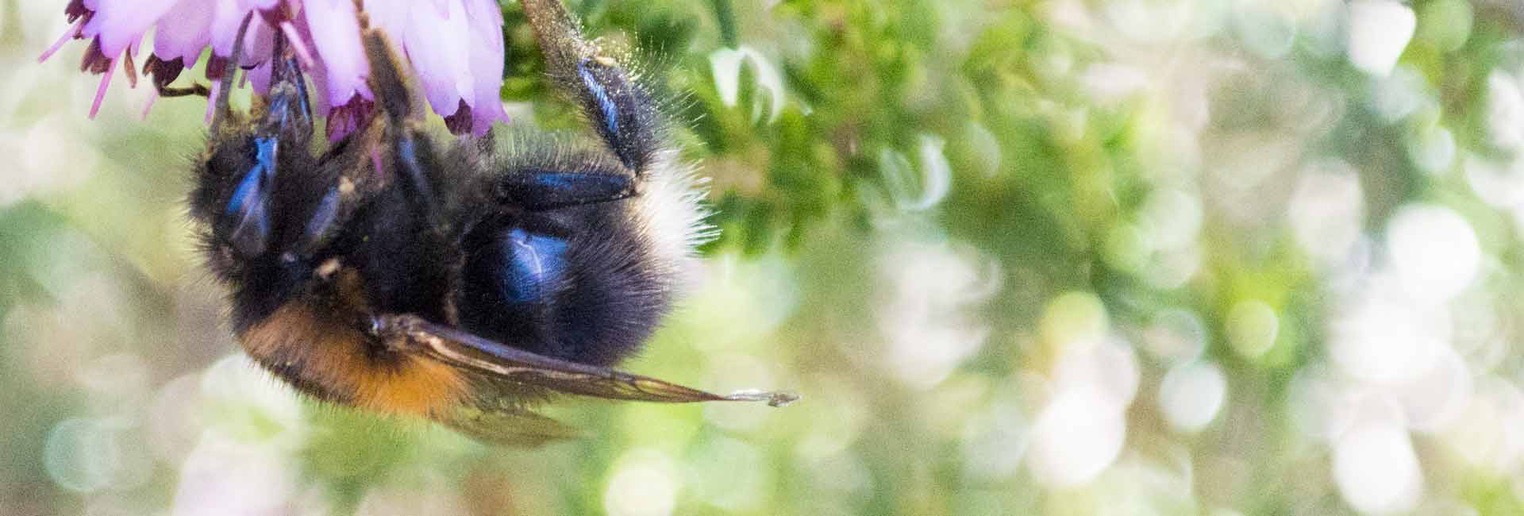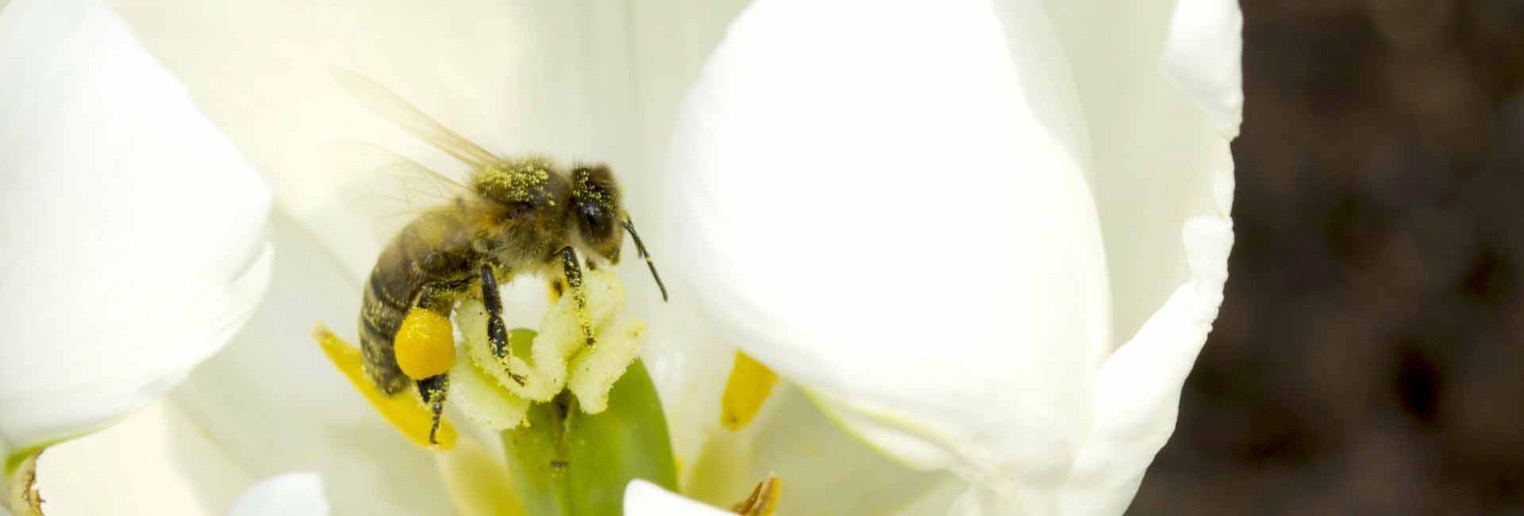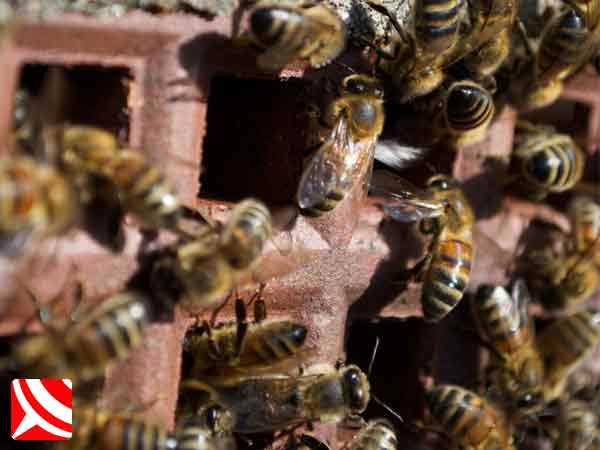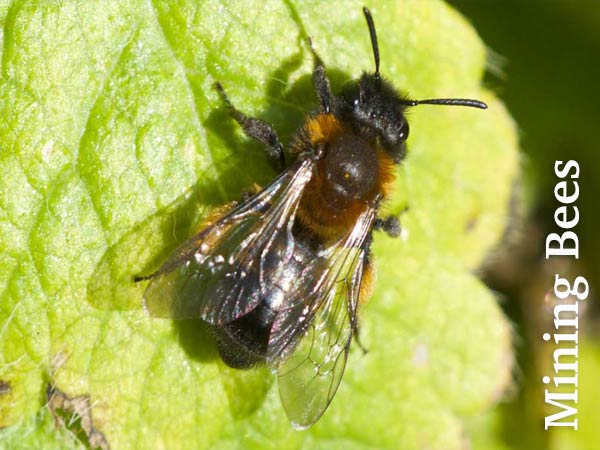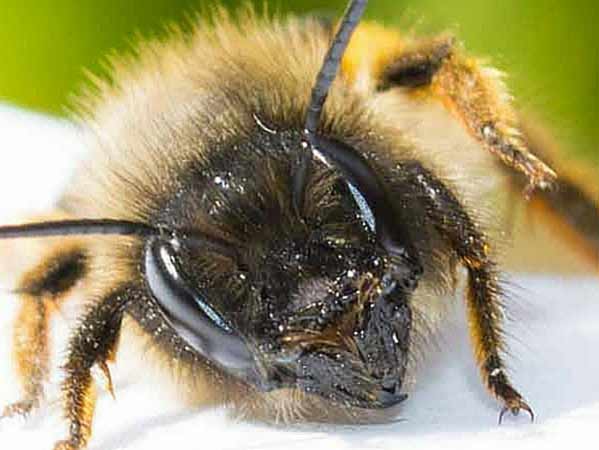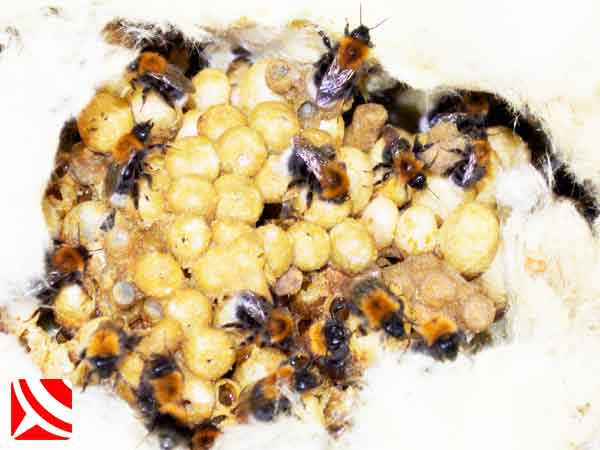Bristol Bee Control: 0117 303 5181
Are UK Honey Bees and Bumble Bees Protected By Law?
NO! - Bees Are Not Protected, but in our opinion, Honey Bee control and removal of bees nests and colonies should be better regulated with accreditation.
What Kind Of Bees Do I Have?
The most common species or kinds of bees you are likely to encounter and possibly view as a nuisance or a pest include Honey Bees, Bumble Bees, Masonry Bees, Mining Bees and Carpenter Bees.
Honey Bees
Honey bees are the best-known bees and the only species of bee used in the UK for honey production. Honey Bees are social insects living in colonies with a queen and a cast of worker bees. Swarms can exceed 50000 insects.
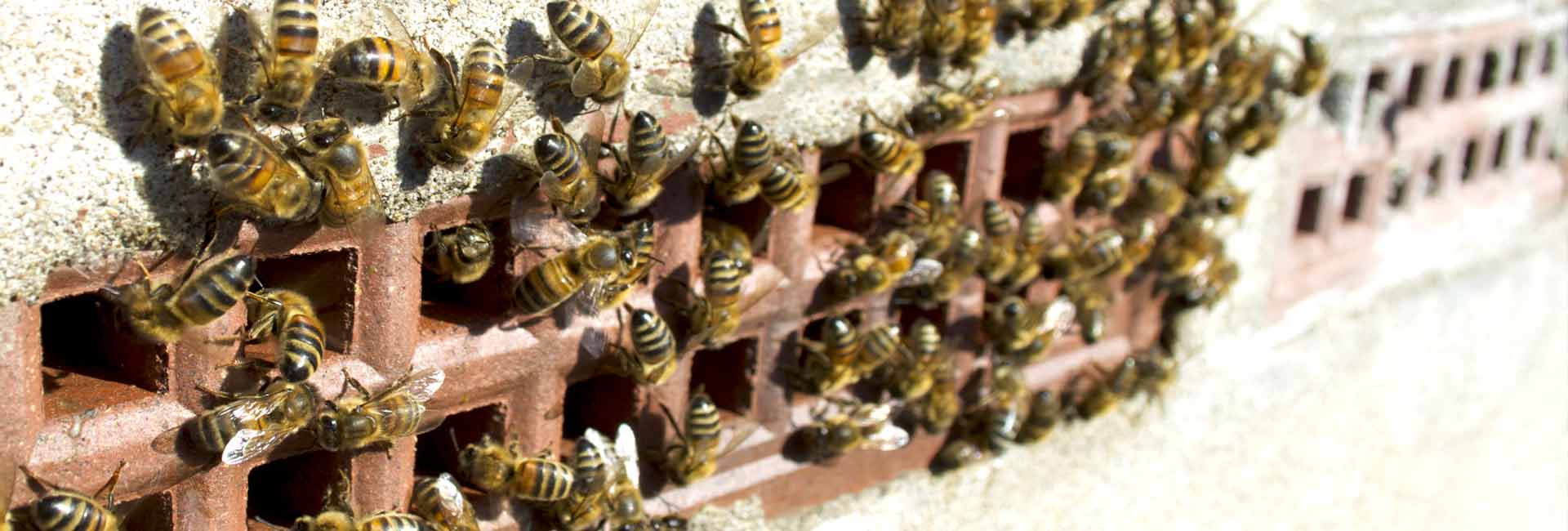
Honey bees in a cavity wall.
Bumble Bees
Bumble bees social insects living in colonies at low level under paths, hedges and in plant pots and walls. The greatest problems are caused when aggressive Tree Bumble Bees nest in people's attics, and the ceiling begins to buzz!
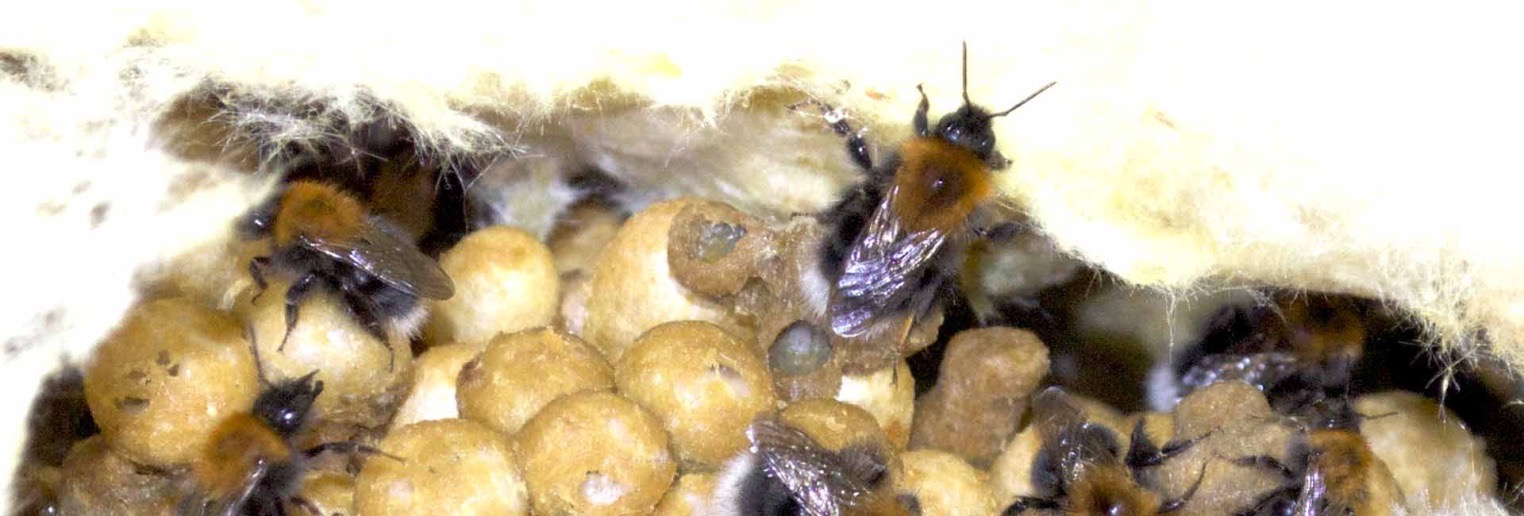
Tree bumble bees in loft insulation.
Masonry Bees
Masonry bees are solitary, and although they can live near one another, these bees do not have a queen or social structure. Masonry bees can become a serious structural risk to your property if they are burrowing into soft mortar or the bricks because the numerous holes allow water penetration.

A common masonry bee
Mining Bees
Mining bees are solitary and often live in close proximity to one another. Mining bees do not have a queen and social structure. Mining bees are best known for their frenzied mating swarms that can exceed a thousand insects.
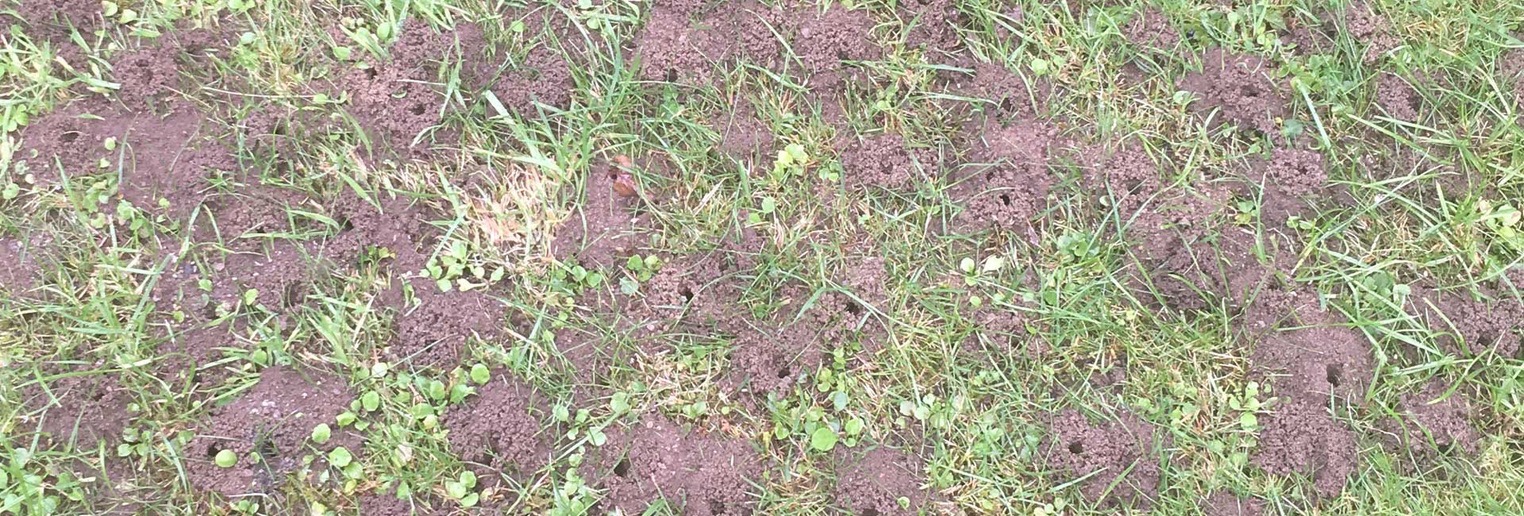
Mining bees infesting a lawn.
Why are Some Bees Killed?
Not everyone loves honey bees. Those who suffer both phobias and severe allergic reactions like the life-threatening condition Anaphylactic shock, need to be better protected. Anaphylactic shock is caused by the bodies response to bee venom, affecting adults and children.
In the vast majority of cases, probably 95%, the bees disembark before we arrive or are collected to be re-homed in hives throughout your local countryside. The exceptions are situations where the bees actively enter a residential building through a roof, chimney or wall void, making lethal control unavoidable.
There is also a misconception that beekeepers will come rushing to help you. We find that in 95% of cases a beekeeper won't be available or even contactable in an emergency situation. For this reason, we have become very experienced in managing swarms safely.
We have come to realise, that where we don't control the final 5% safely and sensitively, there are plenty of inappropriate chemicals that amateurs can purchase, to kill the bees themselves. This indiscriminate pesticide use poses a greater risk, and often contaminates surrounding hives, causing untold damage to local bee populations.
Customers have tried to kill bees with white spirit, petrol, expanding foam, silicon sealant, boiling water, high-pressure jetters and fire!
For us, we must stress control is always a last resort and requires householder consent and written instruction during the inspection visit before we carry out any treatment.
How Dangerous Are Bees?
Being equipped with a sting makes angry bees a formidable force of nature. Most bees are only aggressive when threatened or disturbed, however, you must remember that a compact, settled swarm in a shrub or on a fence post won't be protecting any brood, so is unlikely to attack if left alone.
An unsettled, fragmented swarm with lots of frantic activity across a broad area is likely to be riskier. What's needed, is a visit by one of our experts. Very often by the time we get to you, the swarm has flown off.
Are Bee Stings Dangerous?
Honey bee venom is not pleasant, and if you do get stung, it's important to remove the sting by scraping it off with a nail or credit card as soon as possible. We all react differently to stings, and some people can die from a single sting. This is called Anaphylactic Shock.
First Aid if I'm Stung By a Bee?
Solve Your Honey Bee Problems: Call: 0117 303 5181
Bristol Pest Control ServicesLocal Places And Areas Our Pest Control Service Covers
Bristol - Clevedon - Portishead - Bradley Stoke
